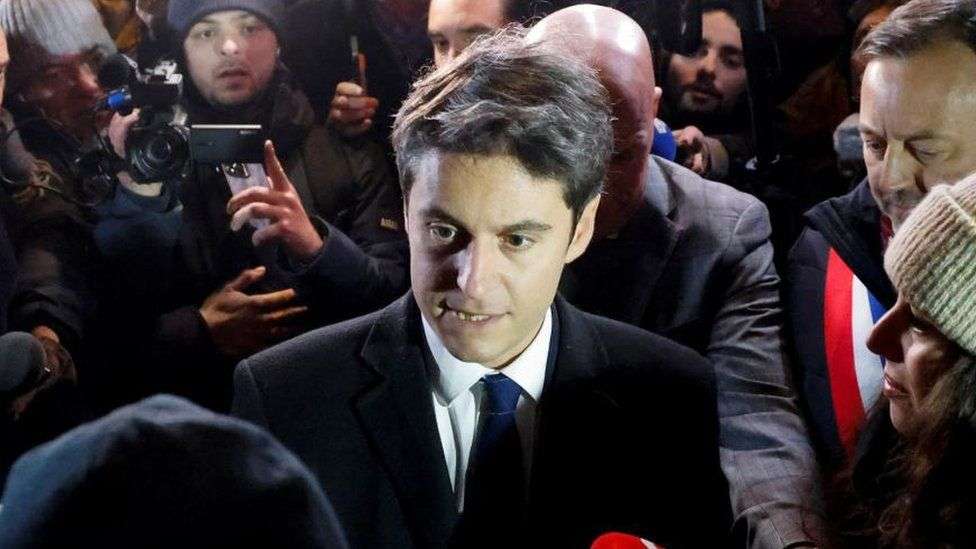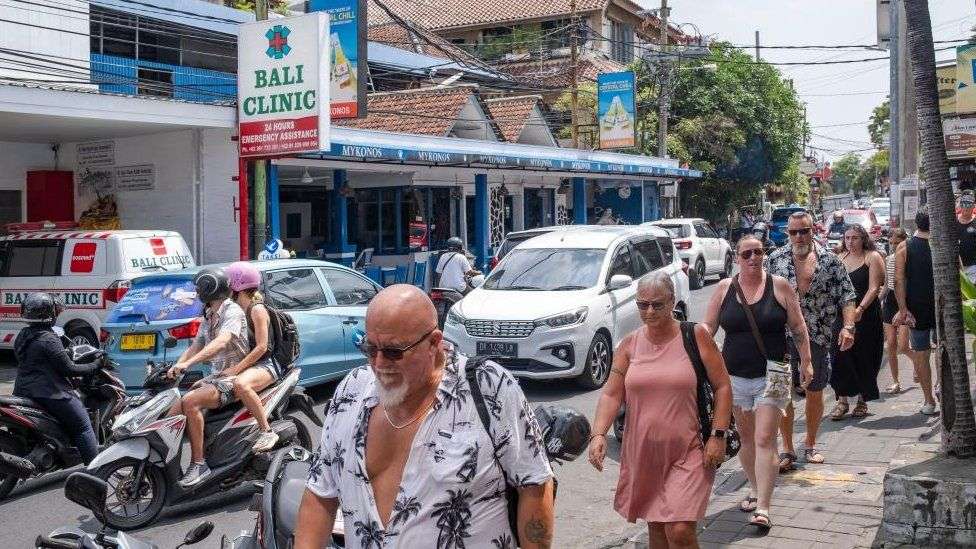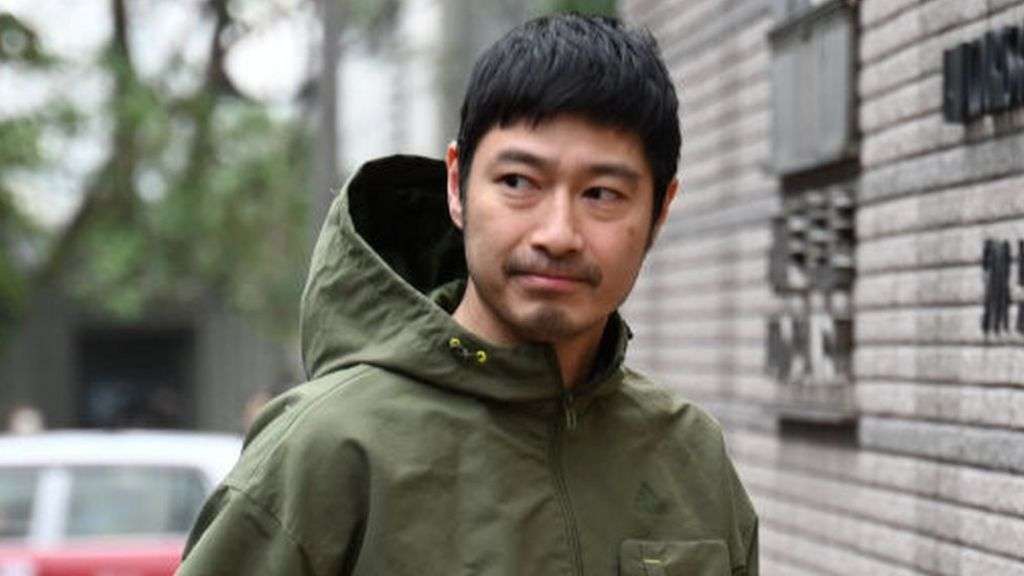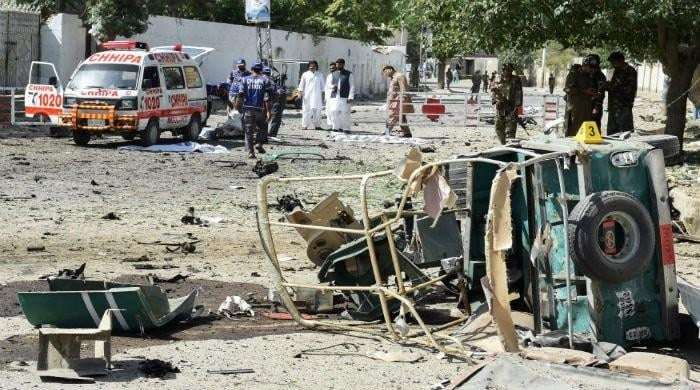In his first days as France's youngest-ever prime minister, 34-year-old Gabriel Attal has promised "action, action, action," as he seeks to re-energise a government that is struggling to push reforms through a deadlocked parliament, and under pressure from an increasingly assertive far-right.
The slim, soft-spoken, but hugely popular Mr Attal has already won praise for empathising with a distraught tobacconist whose business was flooded in northern France.
"We'll be there for you. I'll come back and we'll have a coffee," said Mr Attal, showing a common touch that seems to many here to be in contrast with his mentor, the more regally inclined President Emmanuel Macron.
"He's going to thump the table, and things will work out well. He's a nice lad. I reckon he's more popular than Macron," said Gilbert Ferrier, 79, a pensioner busy mulling which fish to buy at a market in Vanves, the Parisian suburb where Mr Attal used to be a local MP.
"A bit of youth is a good thing. I think he'll light a fire under the French government, which seems to be showing some signs of age," agreed the fishmonger, Johan Chassevent, 49, as he shucked a pile of Coquilles St Jacques.
"He's super. Dynamic, young, full of ideas. Why not, for now?" said Veronique Bacchi, buying pâté with her husband.
Sitting at a nearby café, officials from President Macron's Renaissance party seemed genuinely enthusiastic about Gabriel Attal, a former government spokesman who, they hope, can help persuade French voters against drifting towards far-right parties like Marine Le Pen's National Rally.
The first test of that will come in June's European Parliament elections.
"We're really worried... The far right is waiting in the shadows for the right moment. [They are] a big danger. We need a moderate government to manage this country. Attal is the only one who can get people to rally behind him. Attal is a leader, a hard worker," said Claire Guichard, who replaced Mr Attal as the local MP in Hauts-de-Seine.
Like Macron, Mr Attal has emerged from the centre left of French politics, but during a brief stint as education minister, he seemed to be courting right-wing voters with plans to introduce uniforms and with a brisk decision to defend France's secular traditions by banning the Muslim "abaya" dress at schools.
"It's an interesting move - choosing someone from the left who is more popular with the right and who is able to say a lot about law and order. It comes back to the core values of Macronism, which is coming from the left and being able to talk to the right," said Antoine Bristielle, a political analyst at the Jean-Jaures Foundation in Paris.
But while Mr Macron's abrupt decision to pick a popular and youthful prime minister may have distracted people from his government's broader struggles, the honeymoon period may not last long.
"It could be a brief love affair. It may help [President Macron] to restart his second term mandate. But we will see what happens after the European elections… when Macron still doesn't have a majority in the National Assembly. The rest of his [presidential term] will still be complicated for him," said Mr Bristielle. Mr Macron's second stint as president is due to end in 2027.
Meanwhile, the far-right opposition National Rally (RN) is fiercely promoting its own "whizz-kid" - the party's president, Jordan Bardella. He is just 28 years old and is being touted as a possible prime minister if the RN's Marine Le Pen wins the presidency in 2027. Long before then, RN officials insist, the excitement about France's youthful, and openly gay, prime minister, will have worn off.
"Now he's prime minister, people are going to dislike what he does. He's like Emmanuel Macron in the end so, honestly, I don't think we are scared about him," said Melina Bravo, 24, who works in the RN's communication's office in Paris.








